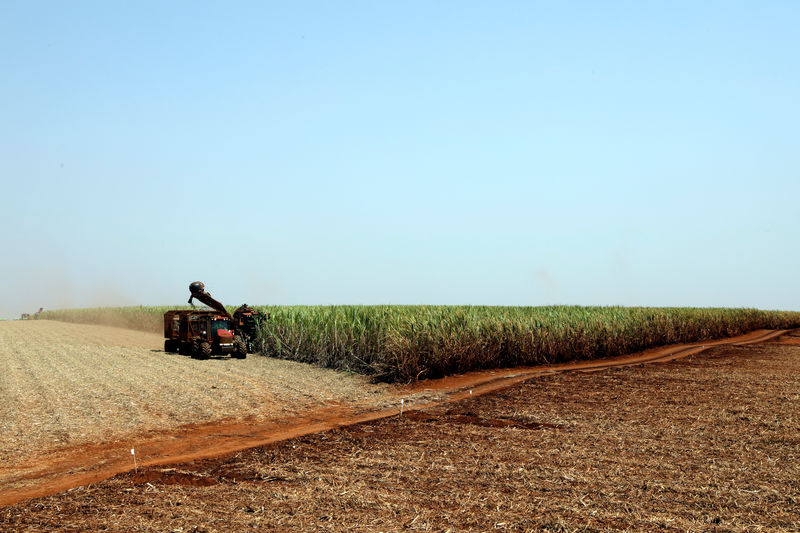By Marcelo Teixeira
SAO PAULO (Reuters) - A likely delay in the start of Brazil's center-south cane harvest may catch some New York sugar futures players on the wrong foot, forcing those operators to cover positions, according to analysts and commodity traders.
Although Brazil's 2019/20 center-south cane crop officially starts in April, many mills begin crushing earlier if their cane is ready. However, fields this year are developing late, after a dry spell in December and January, followed by ample March rain.
The late rainfall may lead some mills to hold off crushing to let the cane turn that moisture into better agricultural yields.
"If that happens, we will see traders running to deal with that lack of available sugar," said Arnaldo Corrêa, a sugar industry analyst at Archer Consulting.
Last Friday, U.S. government data showed speculators had reduced their net short position in raw sugar on the ICE (NYSE:ICE) futures exchange, surprising many in the market.
Brazil is a big swing factor in the global sugar market due to the flexibility of its mills, which manage to go quicker or slower on processing, or direct more cane to ethanol versus sugar production, depending on prices.
"If there is a delay in crushing, then the supply of raw sugar that can be tendered against the May futures may be severely restricted," an analyst at a large European trading house told Reuters.
"There will be a lot of debate about specifically how much cane will be crushed in the second half of March and in April," said the analyst, requesting anonymity to speak openly.
The start to Brazil's cane harvest has varied dramatically in recent years. In 2016, Brazilian mills crushed 80 million tonnes from mid-March to the end of April, but the crush in the same period of 2017 fell below 50 million tonnes.
Last year Brazil's center-south crushed 67.7 million tonnes in that six-week stretch, producing 2.41 million tonnes of sugar. Analysts are forecasting less this year.
Datagro, a leading sugar and ethanol consultancy in Brazil, sees most mills pushing their first crush back by two weeks due to high ethanol inventories and slow cane development.
Brazilian cane industry group Unica said on Tuesday that just 27 center-south mills were operating in the first half of March, down from 50 at the same time last year.
If processing continues to lag, mills and traders that have already sold sugar in New York might roll their positions to July instead of delivering the sugar. That could leave buyers scrambling to find new supplies.
To be sure, a sunny forecast for early April in center-south Brazil could help to jumpstart crushing season, bringing sugar to the market as expected.
Dib Nunes, a Brazilian cane expert, said major cane areas near Presidente Prudente and Araçatuba are likely to see delays, but other parts of Sao Paulo state may not.
Not all of Brazil's cash-strapped mills can afford to wait.
"A potential delay would be 15 or 20 days maximum, not more, because many mills also need to make cash," he said.
